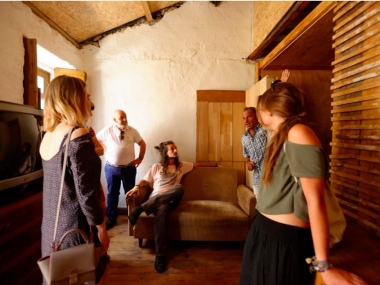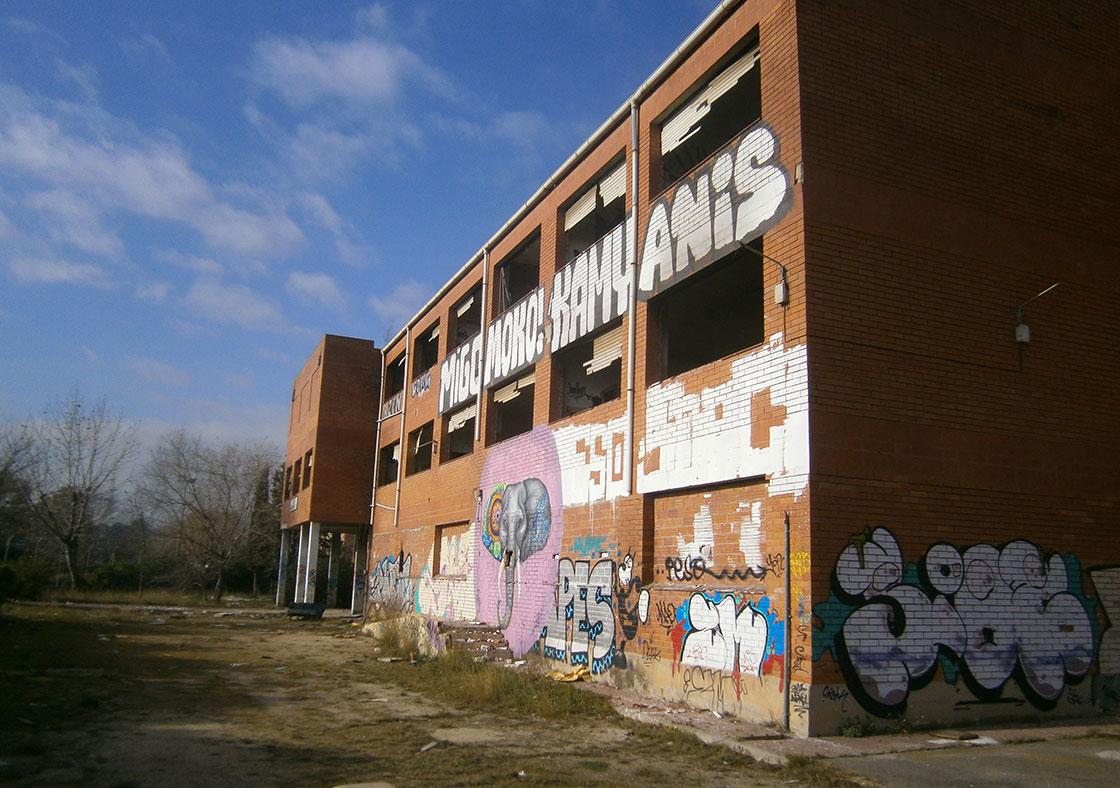4 ways cities are breathing life back into empty spaces
Edited on
03 December 2019URBACT’s new online resource Remaking the city presents a selection of space-related city solutions: remakingthecity.urbact.eu
Cities across Europe are looking for ways to make better use of their empty buildings and spaces. Many have found simple, innovative approaches to bring people, businesses, and variety back into unused office buildings, former industrial sites, and mono-functional districts.

URBACT’s new online resource ‘Remaking the city’ presents a selection of such space-related city solutions. Cases can be found depending on their stage in the urban planning process, and by type of problem: empty or underused buildings; underused areas; rundown segregated areas; mono-functional areas; and unsustainable areas.
Urban expert Ivan Tosics set up the site together with Nils Scheffler from the URBACT 2nd Chance network, François Jégou from the URBACT REFILL network and Maarten van Tuilj from the URBACT sub>urban network. Here, Ivan shares four ways cities are connecting better with residents and other stakeholders to breathe life back into neglected buildings and spaces, one step at a time:
1. Organise cultural activities to put vacant land back on the map
The harbour area of Caen (FR) became a no-go area after the shipyard closed. A first step towards redevelopment was ‘territorial marketing’ to attract people back – at least to safe parts of the site. The city set up artistic and cultural events, such as drawing walks, bike rides, canoeing tours and guided site visits. Thanks to growing popular interest, temporary uses then sprung up in former industrial buildings.
2. Create an agency to help start-ups and families move into unused buildings
 In Bremen (DE), the municipality contracted an NGO to act as an intermediary agency connecting owners of empty properties with entrepreneurs and other people who could use the space. The agency now initiates and supports temporary use projects city-wide, helping local business, developing deprived neighbourhoods, and cutting running costs.
In Bremen (DE), the municipality contracted an NGO to act as an intermediary agency connecting owners of empty properties with entrepreneurs and other people who could use the space. The agency now initiates and supports temporary use projects city-wide, helping local business, developing deprived neighbourhoods, and cutting running costs.
Chemnitz (DE) created a public consulting agency to connect owners of historic apartment buildings with investors to provide affordable homes and workspaces. Grants are channelled to buildings that need it most, and contracts signed with new owners prevent speculation.
3. Support NGOs matching temporary cultural projects with empty properties
In Riga (LV), while many hundreds of buildings were left empty and uncared-for after the 2008 financial crisis, the cultural sector was booming and needed space. There were just a few local temporary use projects, unknown to most property owners. But, Free Riga activists worked increasingly with the municipality – and the Free Riga NGO emerged as a go-between organisation, scouting cultural projects to match up with vacant spaces offered by public and private owners.
4. Bring students in to renovate social housing – and learn new skills
Porto (PT), launched a summer school for architecture, design and construction students to refurbish homes, cultural centres and public spaces. The educational programme combines the theory of sustainable architecture with hands-on construction work. One summer, 40 international students refurbished a large property whose owner couldn’t afford renovation work – providing new, affordable family housing. Close cooperation between the public administration and social services was vital before, during and after the renovations, as well as a non-speculative contract with the owner.
Visit Remaking the city website and watch Ivan Tosics' interview about the project.
The show must go on
Do you know an interesting example of a European city improving the use of empty spaces or abandoned properties? URBACT is looking for contributions! The idea is to expand Remaking the city and inspire urban practitioners to make changes for better cities. Contribute to Remaking the city now!
More on Culture and Heritage on URBACT Website: https://urbact.eu/culture-heritage
 Submitted by Amy Labarrière on
Submitted by Amy Labarrière on




